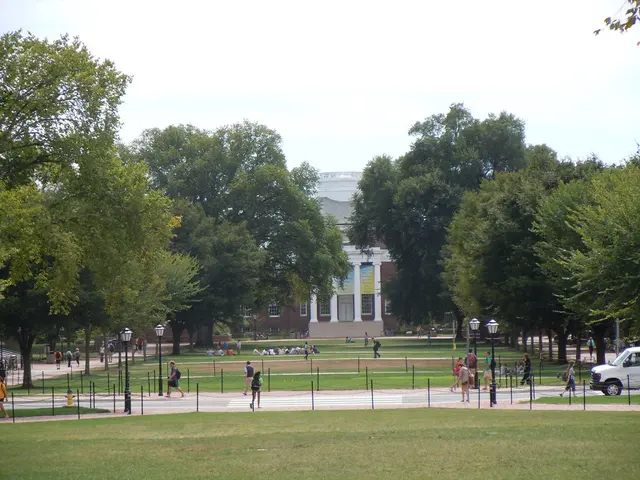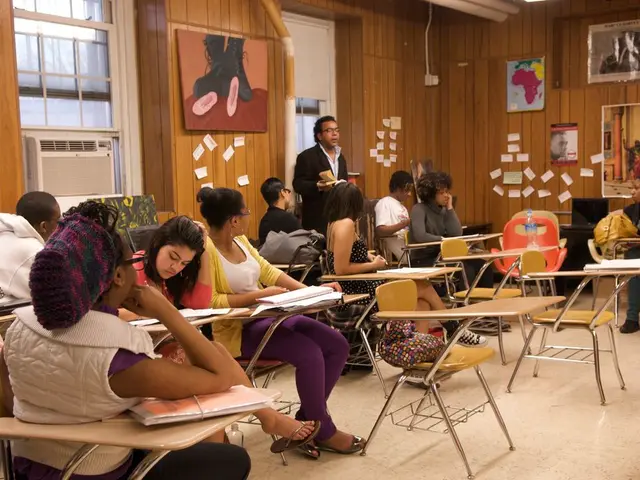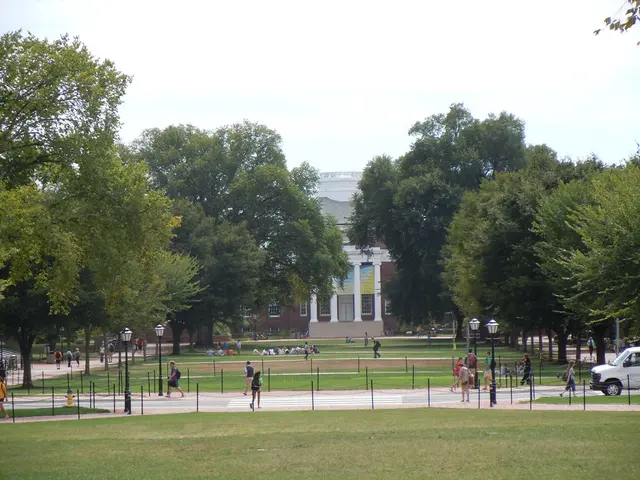Return to Soviet-Style Education Structure in Russia
In a move reminiscent of the Soviet era, Russia is reintroducing a unified educational system, aiming to centralise control and align education with current political and ideological priorities. This decision, expected to be fully implemented by 2026, involves the development of unified textbooks for all subjects [1][4].
## Reasons Behind the Unified Educational System
The government's goal is to centralise education, ensuring a uniform curriculum that can be used to promote specific ideologies and values. This approach offers more control over the narrative taught in schools, aligning with state-defined goals [4].
The new textbooks are designed to reflect a particular ideological perspective, emphasising the role of the Soviet Union in history and promoting a specific view of national identity [4]. This aligns with efforts to instil a strong sense of patriotism and loyalty to the state.
There is also a revival of Soviet-era nostalgia, with a desire to restore elements of the past that are seen as beneficial. The unified educational system is reminiscent of the Soviet era, when education was highly centralised and uniform across the country.
## Potential Implications for Russia's Future
### Social and Cultural Impact
The emphasis on a unified curriculum may reduce diversity in educational content, potentially stifling critical thinking and creativity among students. The system could also reinforce a specific national identity that may not align with the diverse cultural backgrounds within Russia.
### Political and Economic Consequences
By promoting a specific ideology through education, Russia hopes to foster long-term loyalty to the state among its citizens, potentially enhancing political stability. The educational system could prepare students for roles in the economy that align with state-defined priorities, such as IT and technology, which are being promoted through programs like those in the Priority-2030 initiative [2].
### International Relations
The reintroduction of a unified educational system could reinforce international perceptions of Russia as a country moving away from Western values and towards a more centralised control model. Efforts to harmonise educational systems, as seen in collaborations with Belarus, could enhance Russia’s regional influence and promote a common educational framework in aligned countries [3].
In conclusion, the unified educational system in Russia is part of a larger strategy to consolidate power, promote a specific national narrative, and align the population with state ideologies. This could have significant implications for Russia's future political stability, cultural diversity, and international relations.
Technology plays a significant role in the Priority-2030 initiative, as the educational system is designed to prepare students for roles in the economy, particularly in IT and technology sectors.
This centralised educational system, which promotes specific ideologies and values, also serves as a platform for lifelong learning and education-and-self-development, providing a unified approach to knowledge acquisition across various subjects.




